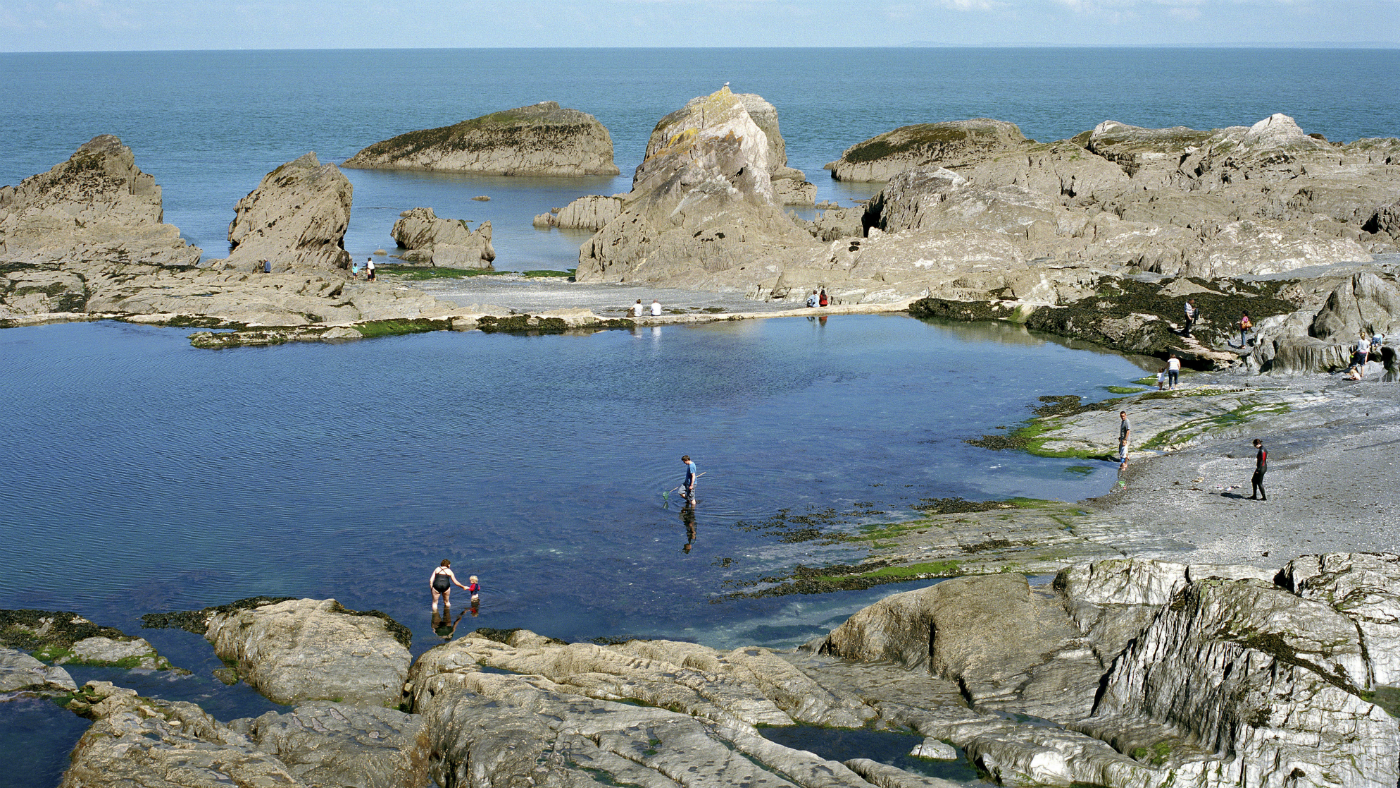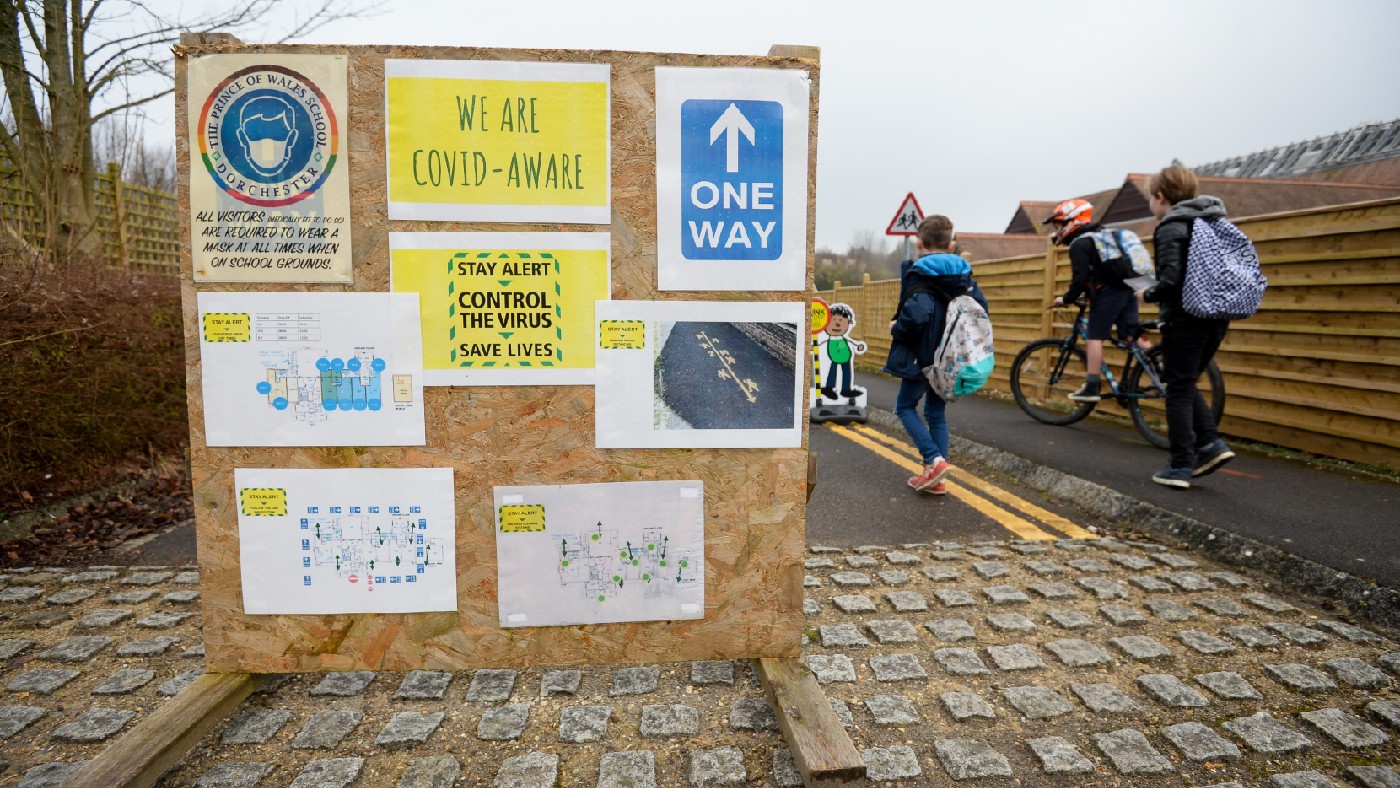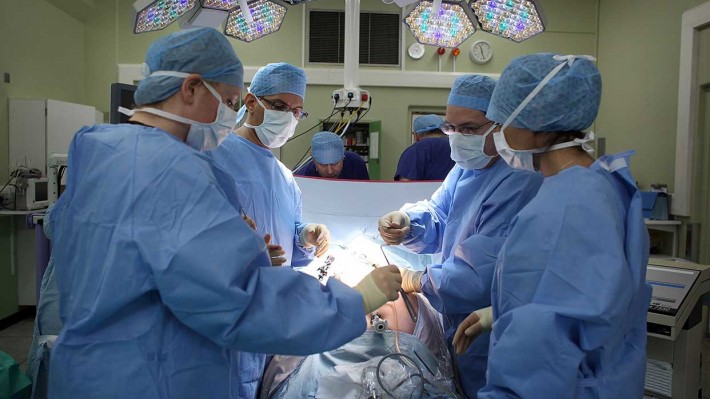Cryptosporidium parasite: is it safe to swim in the sea?
Infected schoolgirl rushed to hospital after playing in water at Devon beach

A free daily email with the biggest news stories of the day – and the best features from TheWeek.com
You are now subscribed
Your newsletter sign-up was successful
Holidaymakers are being urged to avoid swimming at British beaches with poor water ratings after a schoolgirl was infected with a parasite after playing in the Devon sea.
Erin Town, 12, was rushed to hospital after falling ill on 24 July. Doctors later discovered she had contracted cryptosporidiosis, a highly infectious disease caused by the parasite cryptosporidium.
Erin’s temperature hit 40C and she suffered stomach cramps and vomiting, reports the Daily Mail.
The Week
Escape your echo chamber. Get the facts behind the news, plus analysis from multiple perspectives.

Sign up for The Week's Free Newsletters
From our morning news briefing to a weekly Good News Newsletter, get the best of The Week delivered directly to your inbox.
From our morning news briefing to a weekly Good News Newsletter, get the best of The Week delivered directly to your inbox.
Her mother, Paulina Town, said that they had not realised their local Wildersmouth Beach, in Ilfracombe, had poor water quality and that her daughter had been swimming there with friends almost every day for two weeks before becoming ill, says the Daily Mirror.
She continued: “When I told the nurse that [Erin] had been swimming at Wildersmouth in Ilfracombe, she pulled a bit of a face and said several people had been ill after swimming there.
“She said she wouldn’t even take her dog in the water there.”
Katy Nicholls, public protection manager for North Devon Council, said the authority has not received “formal notification from any health body confirming a diagnosis of cryptosporidium”.
A free daily email with the biggest news stories of the day – and the best features from TheWeek.com
She added: “We currently consider this to be an isolated incident, and in light of Wildersmouth Beach being an undesignated bathing beach, we do not intend to take any further action.”
What is cryptosporidiosis?
Cryptosporidiosis is a parasite most commonly seen in children aged between one and five, according to Public Health England. People with weak immune systems are likely to be more seriously affected, and the most common symptom is mild to severe diarrhoea.
“The parasites are resistant to chlorine. Outbreaks of cryptosporidiosis have been linked to drinking or swimming in contaminated water and contact with infected lambs and calves during visits to open farms,” the government agency adds.
Is it safe to swim in the sea?
For the most part, yes. Contracting cryptosporidiosis from seawater is rare unless the body of water has been contaminated with infected faeces. Swimming at beaches with sewage outlets nearby puts bathers at higher risk.
Patient.info says that the highest risk of contracting cryptosporidiosis comes from swimming in the sea in “less developed countries”.
A sign at Wildersmouth Beach states that people should not swim there as it has a poor water rating, although Erin Town’s mother claims the notice was too small to be seen easily.
The Environment Agency water quality profile for the beach states that “bathing at this location is not advised due to poor water quality”. Samples taken between 2014 and 2017 repeatedly failed to meet minimum EU standards.
An Environment Agency spokesperson said: “Wildersmouth Beach is rated as poor and we advise people not to swim or bathe here. We encourage the public to stay safe by checking for signs at beaches put up by the local authority.
“We carry out regular testing at over 400 bathing waters around England and make the results available to the public.”
You can check the status of beaches in Britain by visiting the Environment Agency’s bathing water quality website.
-
 Political cartoons for February 15
Political cartoons for February 15Cartoons Sunday's political cartoons include political ventriloquism, Europe in the middle, and more
-
 The broken water companies failing England and Wales
The broken water companies failing England and WalesExplainer With rising bills, deteriorating river health and a lack of investment, regulators face an uphill battle to stabilise the industry
-
 A thrilling foodie city in northern Japan
A thrilling foodie city in northern JapanThe Week Recommends The food scene here is ‘unspoilt’ and ‘fun’
-
 Neanderthal gene ‘caused up to a million Covid deaths’
Neanderthal gene ‘caused up to a million Covid deaths’Speed Read Genetic tweak found in one in six Britons means cells in the lungs are slower to launch defences
-
 Legalising assisted dying: a complex, fraught and ‘necessary’ debate
Legalising assisted dying: a complex, fraught and ‘necessary’ debateSpeed Read The Assisted Dying Bill – which would allow doctors to assist in the deaths of terminally ill patients – has relevance for ‘millions’
-
 Vaccinating children: it’s decision time for the health secretary as kids return to school
Vaccinating children: it’s decision time for the health secretary as kids return to schoolSpeed Read Sajid Javid readying NHS England to roll out jab for children over 12, amid fears infections will rocket
-
 ‘Vaccination blunts, but does not defeat’: exploring Israel’s fourth Covid wave
‘Vaccination blunts, but does not defeat’: exploring Israel’s fourth Covid waveSpeed Read Two months ago, face masks were consigned to bins. Now the country is in a ‘unique moment of epidemiological doubt’
-
 Thousands told to self-isolate in Covid app pinging error, claims Whitehall whistleblower
Thousands told to self-isolate in Covid app pinging error, claims Whitehall whistleblowerSpeed Read Source says Matt Hancock was privately told of the issue shortly before he resigned as health secretary
-
 Record 5.45m people on NHS England waiting lists
Record 5.45m people on NHS England waiting listsSpeed Read Health chief warns that crisis is nearing ‘boiling point’ as backlog grows
-
 Covid testing: the ‘great new game of holiday roulette’
Covid testing: the ‘great new game of holiday roulette’Speed Read On one day last week, the price of a private PCR test ranged from £23.99 to £575
-
 San Marino is first European country to offer ‘vaccine vacation’
San Marino is first European country to offer ‘vaccine vacation’Speed Read Tiny landlocked nation to give Russian Sputnik vaccine to paying tourists